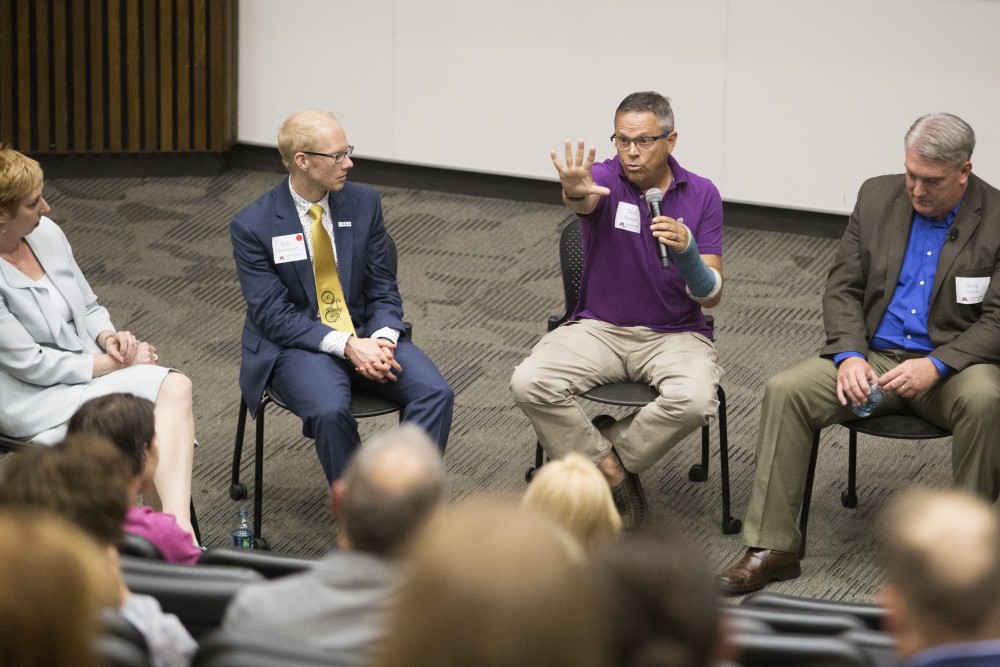The University of Minnesota Twin Cities School of Nursing hosted a statewide conference on Saturday that taught nurse anesthetists ways to combat the national opioid epidemic.
Topics included various ways to address pain management and prescribe opioid-free drugs.
One challenges to solving the national opioid epidemic is changing the healthcare system, as well as transforming the thinking and behavior of health care providers, said Garry Brydges, chief nurse anesthetist at the University of Texas MD Anderson Cancer Center.
“Many [health care] providers are resistant to change because they don’t understand the economics or they’re not sure how to get started,” Brydges said.
Brydges said the conference was innovative, but collaborative effort from manufacturers, policy-makers and heath care providers is necessary to create change.
Opioids are often initially more affordable than alternative pain management methods. But in the long run, it’s more expensive because it can lead to additional problems, such as addiction, Brydges said.
More than 115 people die every day after overdosing on opioids, according to the National Institute on Drug Abuse.
While the ultimate goal is to eliminate opioids and use alternative methods, Brydges said there will always be a need for opioids in health care because of patient variability.
A total of 170 people attended the conference. Certified registered nurse anesthetists, student registered nurse anesthetists and educators attended presentations on how they can combat the opioid crisis in their fields.
“It’s been the norm that opioids are part of the plan,” said Heidi Nichols, a student-registered nurse anesthetist at the Minneapolis School of Anesthesia. “It feels counterintuitive to not be giving pain medication.”
Nichols and fellow SRNA Anna Baker said following the conference they are interested in pursuing opioid alternatives.
“I think we’re here because of a lot of incompetency,” Jackie Rowles, nurse anesthesia program director at Marian University, said during the presentation. “It’s no longer OK to say, ‘take this for your pain, see you in a month.’”
Health care providers need more training on pain management, Rowles said. Adding, there is a lack of accountability over opioid prescriptions for pain management.
According to the Center for Disease Control and Prevention, over 40 percent of all opioid overdose deaths in 2016 involved prescriptions.
“We have to change our expectations,” said Rowles. “We can never be completely pain free.”








